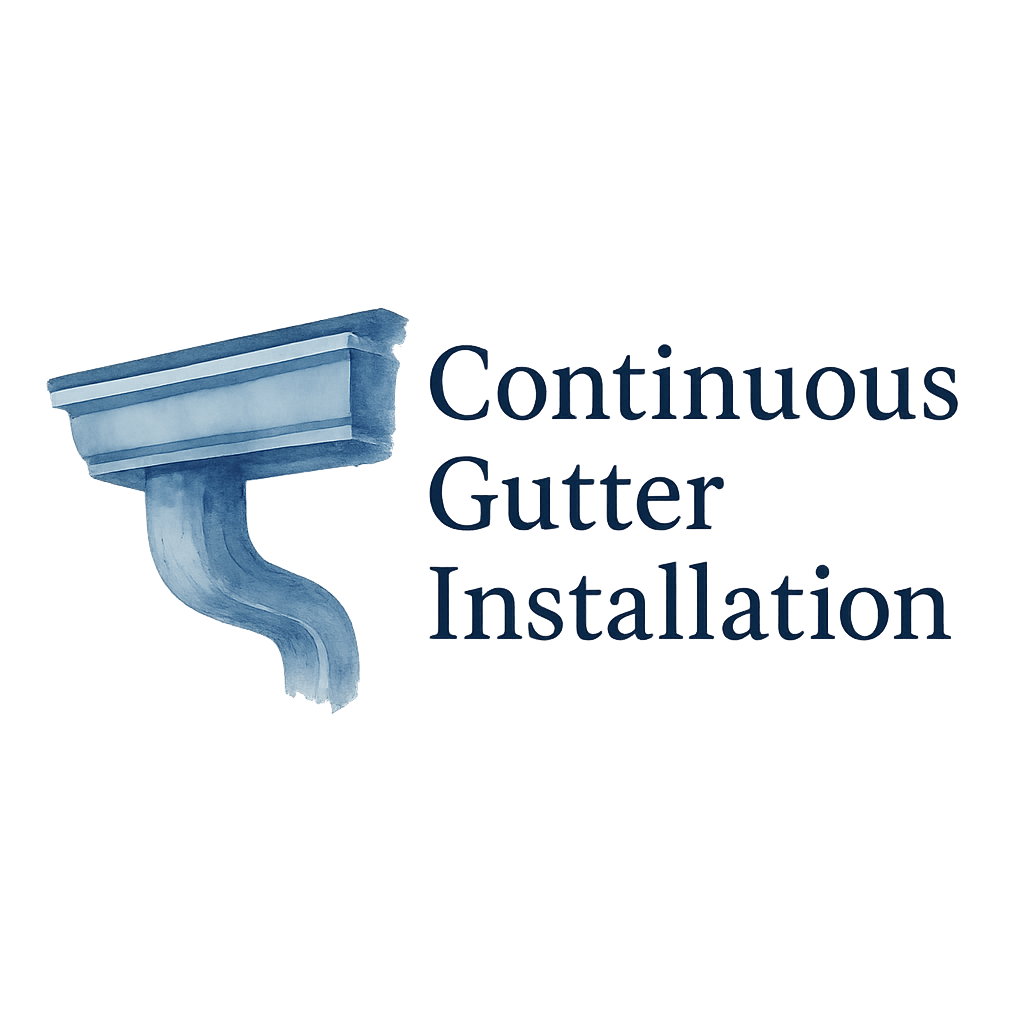Introduction
When it comes to protecting your home from water damage, gutters are the unsung heroes. They channel rainwater away from your foundation, siding, and landscaping, keeping everything safe and dry. But here’s the deal: not all gutters are created equal. Choosing the right material for your continuous gutter installation can make or break the system’s effectiveness, durability, and overall cost.
In this guide, we’ll break down the 10 best material choices for continuous gutter installation, exploring their pros, cons, and best use cases. By the end, you’ll know exactly which material fits your home, budget, and lifestyle.
Why Gutter Material Matters
The Role of Gutters in Home Protection
Think of gutters as your home’s raincoat. Without them, water would pour directly off the roof, eroding soil, flooding basements, and damaging siding. A well-chosen gutter material ensures this protection lasts for decades.
How Material Impacts Longevity and Cost
From aluminum to copper, every gutter material has its own personality—some are lightweight and cheap, while others are heavy-duty and high-end. Your choice will affect not only your wallet today but also how often you’ll need repairs or replacements.
1. Aluminum Continuous Gutters
Benefits of Aluminum
Aluminum is hands-down the most popular choice. It’s lightweight, rust-resistant, and cost-effective. It can be painted to match your home’s exterior, making it both functional and stylish.
Downsides of Aluminum
The only drawback? Aluminum can dent more easily than steel, especially in areas prone to hail or falling branches.
2. Copper Continuous Gutters
Why Copper Stands Out
If you’re looking for elegance, copper is your best bet. It’s incredibly durable, resists corrosion, and adds undeniable curb appeal.
Patina Effect Over Time
Over time, copper develops a green patina—a natural layer that protects it even further. Some homeowners love the antique look, while others may prefer its initial shine.
3. Galvanized Steel Gutters
Durability Factor
Galvanized steel is tough. It can handle heavy rain and snow without bending or cracking, making it perfect for harsh climates.
Maintenance Needs
However, it does require periodic maintenance to prevent rusting. Applying a protective coating can extend its life.
4. Stainless Steel Gutters
Corrosion Resistance
Unlike galvanized steel, stainless steel won’t rust. It’s built to last and can withstand extreme weather conditions.
Modern Look for Homes
These gutters have a sleek, modern appearance, but they come with a higher price tag.

5. Vinyl Continuous Gutters
Affordability Factor
Vinyl is the most affordable option on this list. It’s lightweight, easy to install, and great for budget-conscious homeowners.
Suitability for DIY
Since vinyl gutters often snap together, they’re popular for DIY projects. However, they may not last as long as metal options, especially in extreme temperatures.
6. Zinc Gutters
Long Lifespan
Zinc gutters can last up to 50 years with minimal maintenance. They naturally resist corrosion and require little upkeep.
Eco-Friendly Appeal
Because zinc is recyclable, it’s a great choice for eco-conscious homeowners.
7. Galvalume Gutters
Unique Alloy Properties
Galvalume is a mix of steel, aluminum, and zinc. This combo creates a gutter material that’s stronger than aluminum but more affordable than stainless steel.
Strength vs. Cost
It balances durability with cost-effectiveness, making it a smart middle-ground option.
8. Composite Gutters
Blend of Materials
Composite gutters combine materials like resins and metals, giving you the best of both worlds—strength and flexibility.
Weather Resistance
They hold up well in fluctuating weather conditions, though they’re less common and may require special ordering.
9. Fiberglass Gutters
Low-Maintenance Design
Fiberglass gutters are virtually maintenance-free. They don’t warp, rust, or dent, even after years of exposure.
Lightweight Advantage
Despite being lightweight, they’re strong and long-lasting, though they tend to cost more upfront.
10. Seamless Vinyl-Coated Aluminum Gutters
Added Protection
These gutters combine the affordability of aluminum with the extra durability of a vinyl coating.
Popular Choice for Budget-Friendly Homes
They’re resistant to rust and dents, making them a practical choice for homeowners who want quality without breaking the bank.
Factors to Consider When Choosing Gutter Material
Climate and Weather Patterns
If you live in a snowy region, durability is key. In hot climates, materials that resist UV damage, like zinc or copper, may be better.
Maintenance Commitment
Some materials, like vinyl, require little care, while others, like steel, need regular upkeep.
Budget Considerations
Your budget ultimately shapes your choice. Affordable gutters like vinyl and aluminum fit tighter budgets, while copper and stainless steel serve as premium, long-term investments.
Comparing Costs of Different Gutter Materials
Affordable Options
Vinyl, aluminum, and vinyl-coated aluminum are budget-friendly. Explore more affordable gutter options.
Mid-Range Options
Galvalume, zinc, and fiberglass fall into this category, striking a balance between cost and longevity.
Premium Options
Copper and stainless steel belong in the high-end category, offering unmatched beauty and durability.
For more details, check out this gutter cost budgeting guide.
Common Mistakes to Avoid in Material Selection
Ignoring Local Climate
Choosing vinyl in a region with freezing winters can lead to cracks and leaks. Always match material to environment.
Overlooking Maintenance Needs
Some homeowners pick steel for its strength but forget about its rust risks without proper care. Read more gutter maintenance tips.
Professional vs. DIY Installation
When to Hire a Pro
If you’re dealing with heavy or high-end materials like copper or steel, it’s best to hire professionals for gutter installation.
Risks of DIY Gutter Projects
DIY may save money, but improper installation could cost you more in water damage down the road.
Gutter Maintenance Tips for Longevity
Cleaning and Debris Control
Regular cleaning prevents blockages and extends lifespan. Consider gutter protection systems like screens or covers to minimize debris buildup.
Seasonal Care Tips
Inspect your gutters before winter and after heavy storms. Visit the seasonal care section for more advice.
Conclusion
Your gutters may not be glamorous, but they’re absolutely essential for protecting your home. By carefully selecting the right material, you can strike a balance between affordability, durability, and style. Whether you go with budget-friendly vinyl or invest in timeless copper, your choice today will safeguard your home for years to come.
FAQs
1. What is the most affordable gutter material?
Vinyl and aluminum are the most affordable, making them ideal for homeowners on a budget.
2. Which gutter material lasts the longest?
Copper and zinc gutters can last 50 years or more with minimal upkeep.
3. Are seamless gutters better than sectional ones?
Yes, seamless gutters reduce leaks and require less maintenance compared to sectional gutters.
4. Can I install continuous gutters myself?
DIY is possible with vinyl, but heavy materials like steel and copper are best left to pros.
5. How often should I clean my gutters?
At least twice a year, or more often if you live near trees.
6. Do gutter guards work with all materials?
Yes, gutter guards or screens can be fitted to most materials, enhancing their longevity.
7. Where can I learn more about gutter styles and types?
Check out this detailed guide on gutter types and styles.


